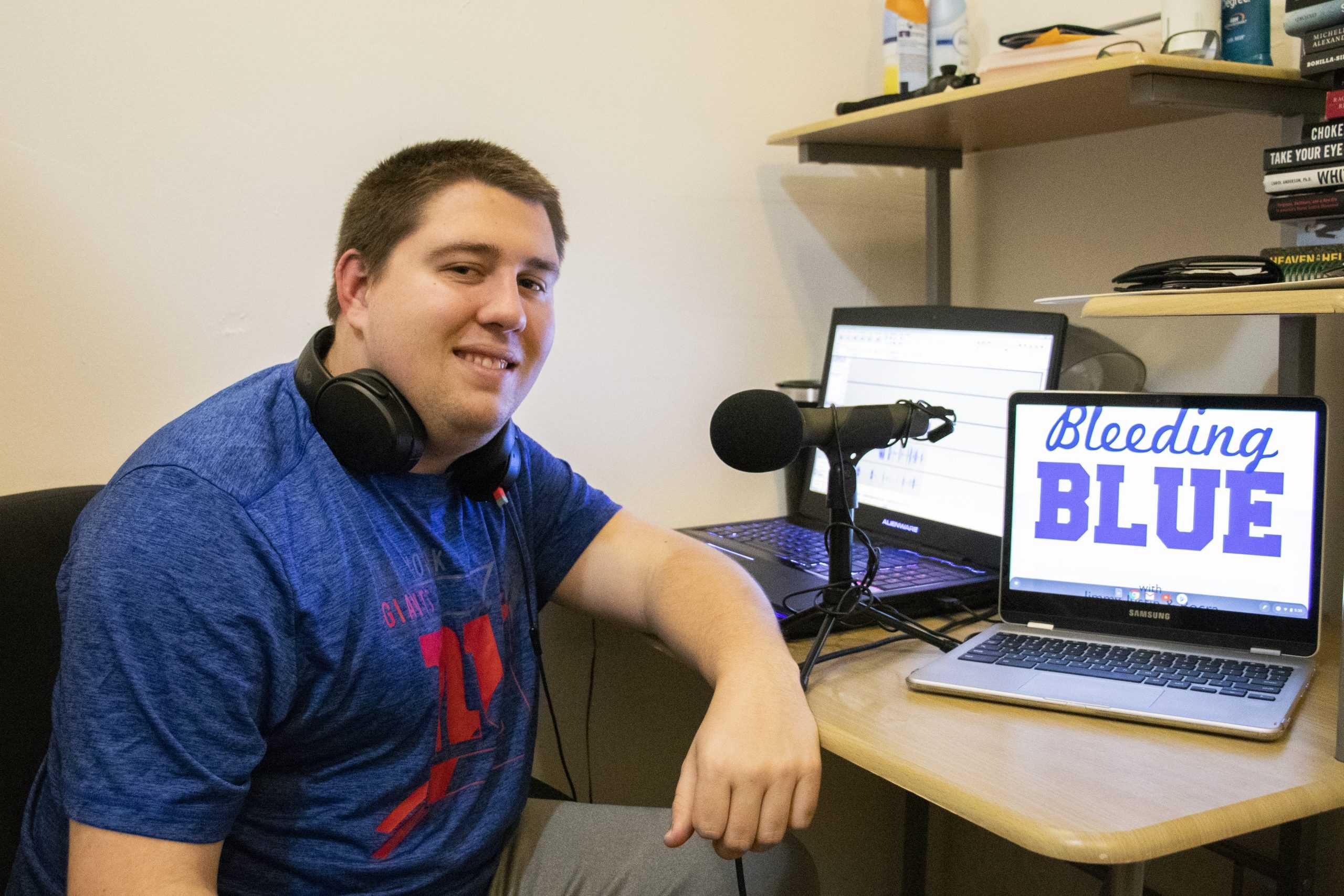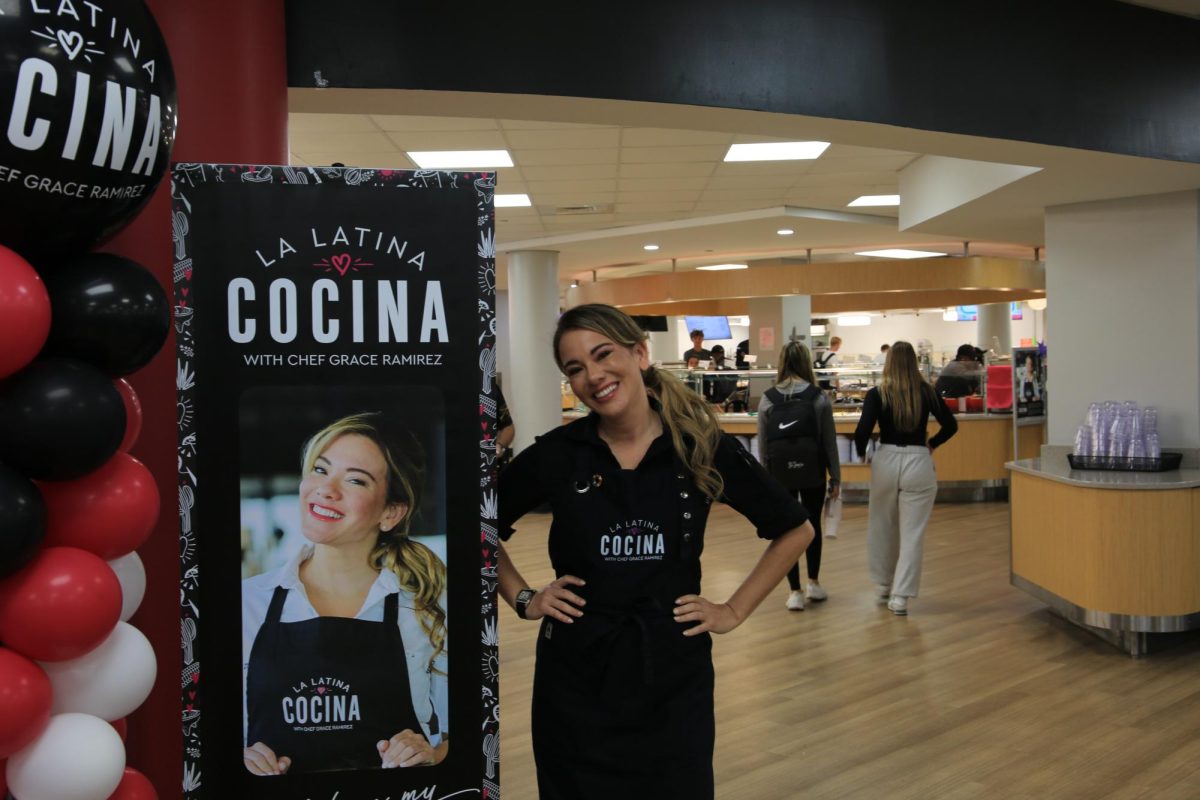Gone are the days of simply listening to music while going through the mundane activities of our everyday lives. And frankly, sometimes exclusively listening to music can become boring.
This is just one of several reasons why the headphones of 67 million users as of 2017 constantly switch from their favorite tunes to the voices of people telling stories, of experts sharing what they know, of interviewers asking our most burning questions. Podcasts have taken the media world by storm, as a way to make those otherwise routine moments of our day a little more interesting.
Part of the major success of podcasts in recent times is that there is something for everyone. Podcasts give people the chance to embrace their quirks. There is no need to conform; whatever you want is out there waiting for you to press play.
“One of the good outcomes of the internet was one that I don’t think people saw coming,” said Steven Hammer, assistant professor of communication studies. It opened the door and made niche things possible and popular.”
Hammer specializes in audio production in the communication studies department. He incorporates podcast production into many of his classes and has offered a course that solely focuses on creating podcasts from start to finish.
“My favorite podcasts are super dorky, they’re like a subsection of sports science dedicated to ultra marathoning,” Hammer said. “It’s super specific, and that would never work on radio, because there aren’t enough people in a local market to support that.”
Not only are podcasts accessible for listeners, but for anyone who wants to produce one of their own. There are a few boxes that need to be checked before a podcast can take flight, according to Hammer.
“First you have to have ethos,” Hammer said. “Or you have to just be super entertaining or funny or good at talking in a way that’s interesting to listen to, which is a hard skill. Then it takes the form of writing—I’ll have [students] first write a script, and then you have to write it for your voice. And that’s really hard.”
After discovering the ethos and writing in your own voice comes hitting record and editing after. Hammer said these are all basic components of a successful podcast.
Jeff Martin, managing editor and producer of the marketing communications department, said the creation of his podcast “Good to Know” means more than just talking into a microphone. Martin originally created “Good to Know” as a way for faculty members to share their stories and expertise on their specific field. Martin made each episode focus on a topic pertinent to the time of year, and found a faculty member who could delve more into the topic.
He said using a podcast to execute this concept would not only be the most interesting approach, but the most fun.
“It was born out of the idea that we could feature headier topics without having to write long, complicated essays about them,” Martin said. “I think you can passively listen to podcasts, but I don’t think you could passively read something and pick up the topic as well.”
Martin compiles every episode, which usually run about 20 minutes, completely by himself. And while the formatting of the podcast has shifted, the goal has remained the same: learning something interesting to share with a larger audience.
“If you can spend your drive to work learning something interesting that you can share with your friends, I think that’s a good use of everyone’s time,” Martin said.
Students have also turned to podcasting to express their interests. One of them is Justin Penik ’20.
Penik has been producing his podcast, “Bleeding Blue,” since June 2018. The show explores New York Giants football, something Penik is passionate about.
“I felt that I legitimately had something I wanted to say and could see myself building those communities on my own,” Penik said. “Taking aspects of community and what we’ve learned from St. Joe’s, bringing it to social media and podcasts is definitely something I wanted, and it’s going pretty well so far.”
While “Bleeding Blue,” is fostered by two people, Penik and David Powis ’18, Penik is a completely self-taught podcast producer, using Google and Youtube to understand the inner workings of his craft.
First and foremost, Penik said podcasters need to give listeners a reason why they should click on the show.
“Creating that content and being versatile in what you can do,” Penik said, “then the podcast will follow, and all the rest will follow, too.”
















































Cathy Mullee • Nov 20, 2019 at 4:14 pm
Love this article. It was very well written. And very informative. Podcasts are so entertaining and are a great way to learn something new. Nice work.